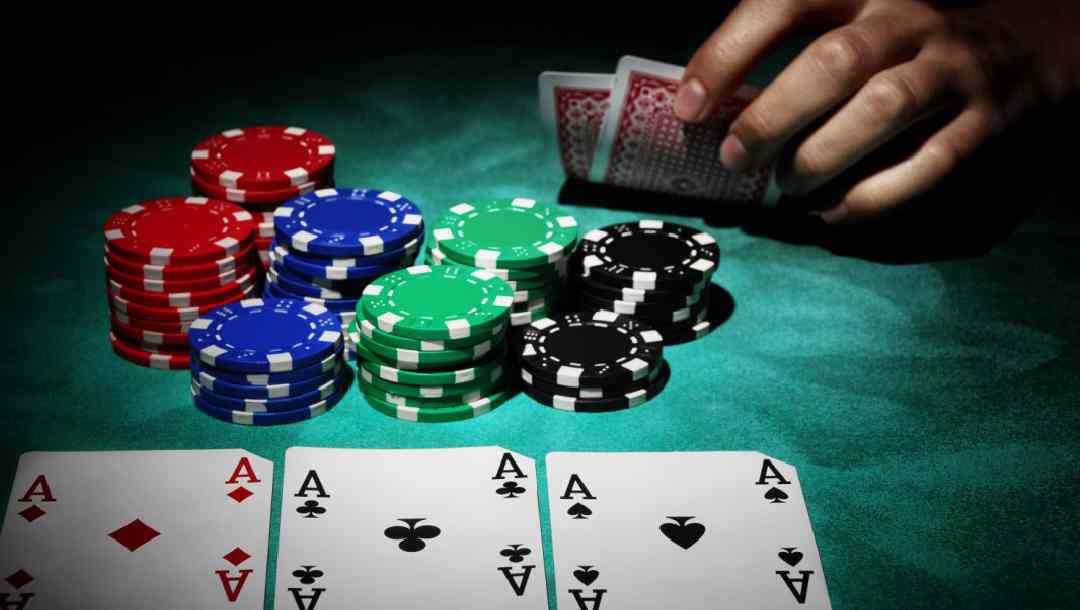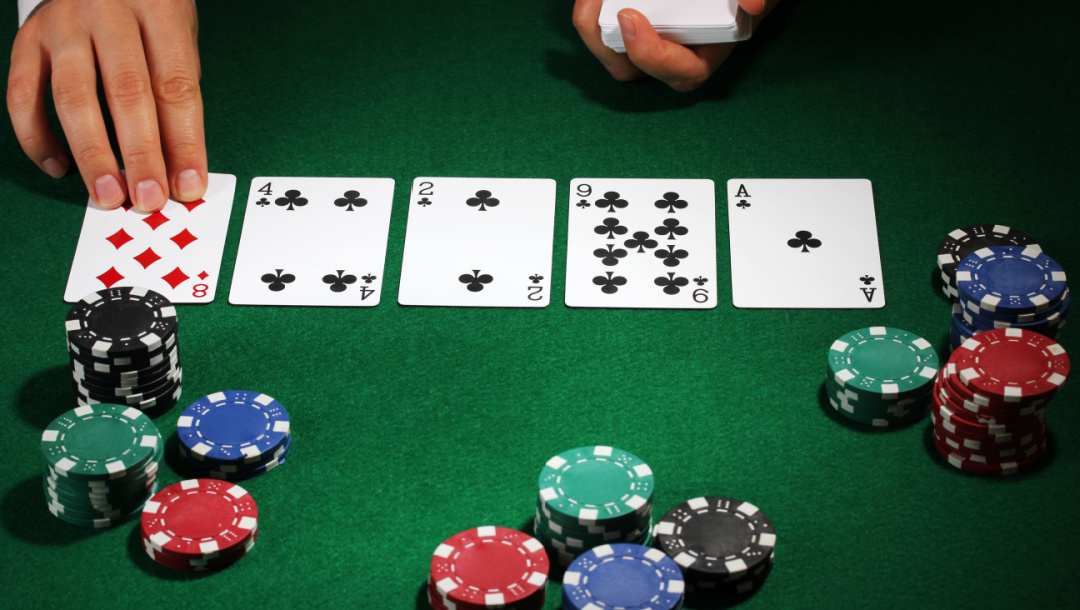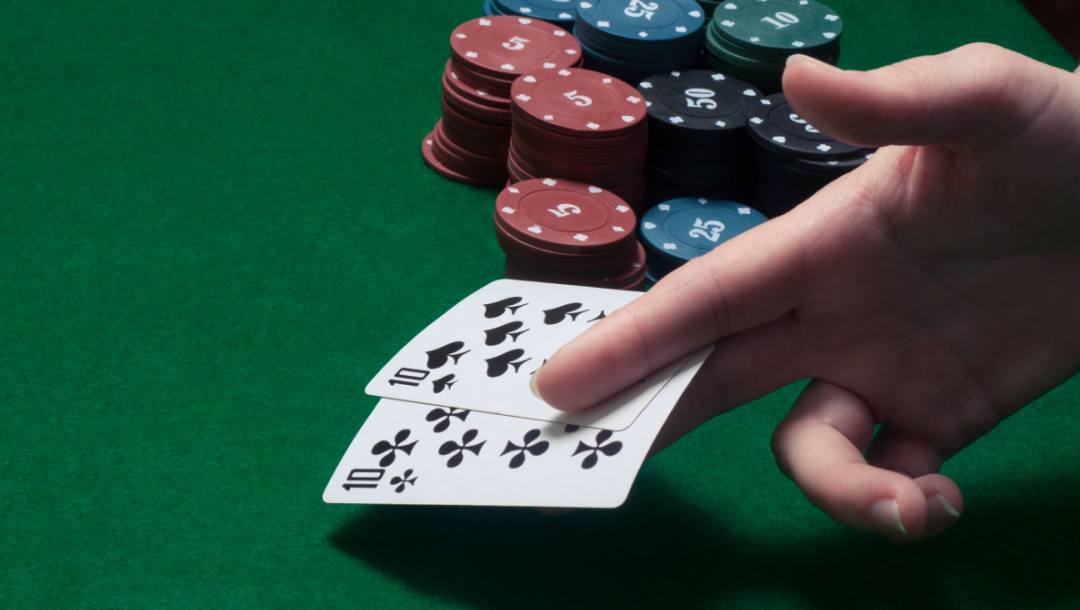In Texas Hold’em, the river is where much of your money will be won and lost. Learn how to improve your play on the river with these strategy tips.
River Play Strategy Tips for Poker Players

In Texas Hold’em, the river is where many of your trickiest spots will unfold. If you’re an inexperienced player or a complete newcomer to live and online poker, it can be tough to know what to do.
This guide will help you sharpen your strategy on the river – and, as a consequence, improve your bottom line.
River Poker Strategy
Many of the situations you find yourself in can be quite agonizing. Should you make a hero call? Can you really let go of a set? Do you have the courage to fire a third bullet with complete air?
Here are some tips to maximize your win rate and hopefully reduce the confusion that often arises on this street. These apply regardless of whether you play Texas Hold’em online or in a brick-and-mortar establishment.
Defining Ranges
This is important in any poker tournament or cash game. However, it becomes increasingly so on the river. By this point, you ideally should have a clear picture of your opponent’s range. Unlike other online casino games, success in poker depends on studying and learning from your opponents.
During every street, you should analyze their behavior. This includes their pre- and post-flop actions, as well as their bet sizings and how they react to other players. What’s more, table position also impacts ranges.
Having a clear picture of an opponent’s range may not always be possible. For example, if the action has been fairly passive, you’ll have less information to go on. In addition, experienced players will mix up their behavior. Never assume that a player does or doesn’t have a specific hand.
Make Decisions Based on Pot Odds

You must always consider the pot odds. Because there are no more actions after the river, this percentage gives you a precise idea of whether a bet or a call is mathematically correct.
Whether playing an online poker tournament or any other format of the game, you calculate pot odds in the same way. First, work out the total pot size if you were to call the current bet. Then, divide the size of the bet by the total pot before multiplying it by 100 to get a percentage.
For example, let’s say you face a $50 bet into a $100 pot on the river. You’d need a better hand than your opponent’s range 33% of the time to make it worthwhile to call. Use the same formula to determine whether or not a bluff would be profitable.
Playing the River In Position
When you play hands from late position, you have a clear advantage over other players at the table. You’re able to act after your opponents, which gives you more information about their potential hands.
If you play poker online, you won’t be able to catch any physical tells – but you can at least see their levels of aggression and bet sizing, which helps you to define their ranges. You might even spot some timing tells.
While none of this guarantees a win, it does improve your chances. Still, your strategy will depend on whether you’re confident that you have the best hand.
When You Believe You Have the Best Hand
If you’re confident that you have the best hand and you’re in position, you’ll want to get as much value out of it as possible. Focus on making big bets, typically equal to the size of the existing pot.
Even if your opponent is less likely to call against these bigger bets, it’s still more profitable than trying to encourage them to call. Provided you’re sure of your opponent’s range, you should be able to make large bets without any issues.
When You Think You Have the Worst Hand

In some situations, you may realize that you almost certainly have a worse hand than your opponent – for example, when all you’re holding is a high card. In these situations, folding is normally the sensible option.
However, you have a good opportunity to bluff when you’re in position. If your opponent checks to you, use the pot odds calculation to determine whether or not this would be profitable.
When You’re Unsure
Sometimes, you may be unsure about the strength of your hand compared to that of your opponent. In these situations, avoid betting marginal hands. If your opponent checks to you, just check back. When facing a bet or a raise, consider the pot odds, but don’t be afraid to fold.
Playing the River Out of Position
Being out of position puts you at a disadvantage, with less information to work with. Your opponents will be able to react to your own actions rather than the other way around. You can still win from early positions, but it affects your chances. Your strategy should depend on whether you’re confident about your hand compared to the other player’s ranges.
When You Have the Best Hand
Rather than making your bets as big as possible and maximizing your hand value, you must be more cautious out of position. Even when you’re confident that you have the best hand, your river betting sizes should be more modest. Your opponent isn’t likely to call if they’re unsure that they have the best hand.
Imagine they’re holding bullets (the poker hand nickname for pocket aces), but there’s a possible straight out there. If you bet the size of the pot, you’re probably not getting a call — they might be tempted to keep you honest with a smaller sizing.
However, if you think your opponent has a weak hand, it can be worth checking. This might draw a bluff, in which case you can raise and take down a bigger pot. Any bet would simply trigger a fold.
When You Think You Have the Worst Hand
If you’re confident that you’re behind, you have an easy decision. Simply check and fold to any action. Attempting to bluff in this situation is rarely a good idea.
When You’re Unsure
If you’re not certain about the relative strength of your hand, it makes sense to play cautiously. Avoid being the first to bet, as you’ll mostly be called by hands that beat you. Instead, check and then consider the pot odds before deciding to call.
However, in a live casino poker tournament, you might have a good read on your opponents. Depending on the player, this may be a bluffing opportunity.
Smooth Sailing Down the River
In summary, your river strategy should depend on your table position as well as your relative hand strength. Having a clear idea of ranges and pot odds is really important on the river.
Register at BetMGM today to enjoy safe and secure poker tournaments and cash games. In addition, you can try out hundreds of online slots and live dealer casino games.


